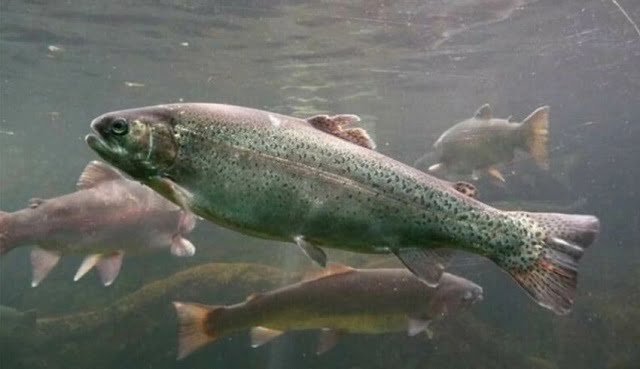
For Atlantic salmon breeders, early puberty in male fish is a big headache. These “precocious males” stop growing quickly, become aggressive, and suffer health problems, ultimately affecting the quality and profitability of farmed salmon. But a recent scientific breakthrough offers a ray of hope!
Different strategies have been studied to prevent premature maturation of male salmon, including experimentation with photoperiod, the use of genetic markers, and feeding, with varying levels of success.
Now, a team of scientists from the Institute of Marine Research, Utrecht University, and Embrapa Amazônia Ocidental evaluated the hypothesis that puberty in male Atlantic salmon is blocked if the fshr gene is non-functional. They employed genetic silencing tools.
The Guilty Hormone
Puberty in vertebrates, including fish, is orchestrated by a complex interplay of hormones. Two key factors are the follicle-stimulating hormone (FSH) and luteinizing hormone (LH), which interact with gonad receptors to trigger sexual development.
However, researchers discovered a unique twist in salmon. Unlike other fish, where both hormones are present, only FSH plays a key role in their puberty.
Unlike other fish studied, such as medaka and zebrafish, male Atlantic salmon solely depend on FSH during puberty. This unique feature presented an opportunity to explore the specific role of the FSH receptor in salmon.
CRISPR-Cas9
Using the revolutionary gene-editing tool CRISPR-Cas9, researchers altered the FSH receptor gene in male salmon. While some of these fish still matured normally, others remained sexually immature, with underdeveloped testes and low hormone levels.
The research revealed that in Atlantic salmon, altering the FSH receptor alone is sufficient to prevent puberty and maintain fertility. This contrasts with other fish species, where both FSH and LH are necessary for normal development.
In summary, the results were fascinating:
- Mutation Success: The CRISPR technique successfully altered the FSH receptor in many fish.
- Delayed or Null Puberty: Most of these mutant fish remained immature, indicating the crucial role of the FSH receptor in triggering salmon puberty.
- Preserved Fertility: Interestingly, despite puberty delay, many mutant fish retained their fertility, suggesting that this approach might not harm future reproduction.
Implications for the Salmon Industry
This discovery opens up interesting possibilities for salmon aquaculture. By manipulating the FSH receptor, researchers could:
- Delay or prevent early puberty: This could lead to healthier, faster-growing fish with better market value.
- Develop non-invasive methods for sex control: This could help balance gender ratios in aquaculture, optimizing production and reducing environmental impacts.
- Understanding Puberty: The findings offer valuable insights into the complex hormonal dance of puberty in salmon and potentially in other fish species.
Conclusion
“We observed that male Atlantic salmon fshr remained immature, while all control fish entered maturity,” conclude the scientists.
While this study focused on Atlantic salmon, the insights could be relevant for other fish species and even for broader scientific understandings of animal puberty.
It is important to note that this research is still ongoing, and its practical applications may take some time. However, it represents a significant step forward in understanding and possibly controlling salmon puberty, leading to a better future for both the salmon industry and aquaculture.
The use of genetic editing adds to the toolbox available to salmon producers to reduce the incidence of premature sexual maturation in male salmon.
Finally, the study was funded by the Research Council of Norway.
Contact
Eva Andersson
Institute of Marine Research
P.O. Box 1870, Nordnes, NO-5817 Bergen, Norway.
Email: evaa@hi.no
Reference (open access)
Eva Andersson, Rüdiger W Schulz, Fernanda Almeida, Lene Kleppe, Kai Ove Skaftnesmo, Erik Kjærner-Semb, Diego Crespo, Per Gunnar Fjelldal, Tom Johnny Hansen, Birgitta Norberg, Rolf B Edvardsen, Anna Wargelius, Loss of Fshr prevents testicular maturation in Atlantic salmon (Salmo salar L.), Endocrinology, 2024;, bqae013, https://doi.org/10.1210/endocr/bqae013

